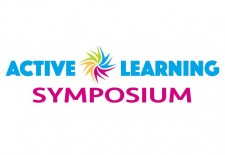Active Learning
Active learning is an approach that strives to involve students in the learning process more directly. That sounds so logical that I suspect some people would say "Isn't that what every class is doing?' It certainly is not a new idea, but it is not the norm in many courses and classrooms.
I think the active learning approach was introduced by Reginald Revans as "action learning." Either term can describe an approach to have students do more than passively listening by being actively or experientially involved in the learning process.

Frequently, this approach has students read, write, discuss, or be engaged in solving problems, and engaging in higher-order thinking tasks such as analysis, synthesis, and evaluation. A very simple definition might be having students doing things and thinking about the things they are doing.
I am doing a presentation this week that I titled "Predator and Prey: Active Learning Is Social Learning at the Active Learning Symposium at Rutgers University.
I base it on the premise that active learning is often social learning. The session will be primarily hands-on using a problem solving activity identifying animal species based on viewing skulls.
 It is a hands-on "active" presentation with people who have little or no background in osteology (the study of bones and skulls), but that is not what I am usually teaching when I do this activity.
It is a hands-on "active" presentation with people who have little or no background in osteology (the study of bones and skulls), but that is not what I am usually teaching when I do this activity.
I have used this activity with elementary school students, high school students, undergraduates and adults outside of a school setting.
I have usually used it in critical thinking classes, but the learners will also learn something about the skulls and species. When I use the activity to teach about osteology, it is an active way to involve the learners in critical thinking. Groups quite naturally are active and become social in the process.
The action learning process typically addresses a real problem that is important, critical, and usually complex and involves a problem-solving set. The process promotes curiosity, inquiry, and reflection.
I'm not locked into labels and if someoen told me that my active learning activity was actaully experiential learning, or action learning, adventure learning, free-choice learning, cooperative learning, service-learning, or situated learning, I would say that is a good possibilty (though I know these terms are not strictly synonymous). My interest is in the learning, not the label.
Trackbacks
Trackback specific URI for this entryThe author does not allow comments to this entry
Comments
No comments